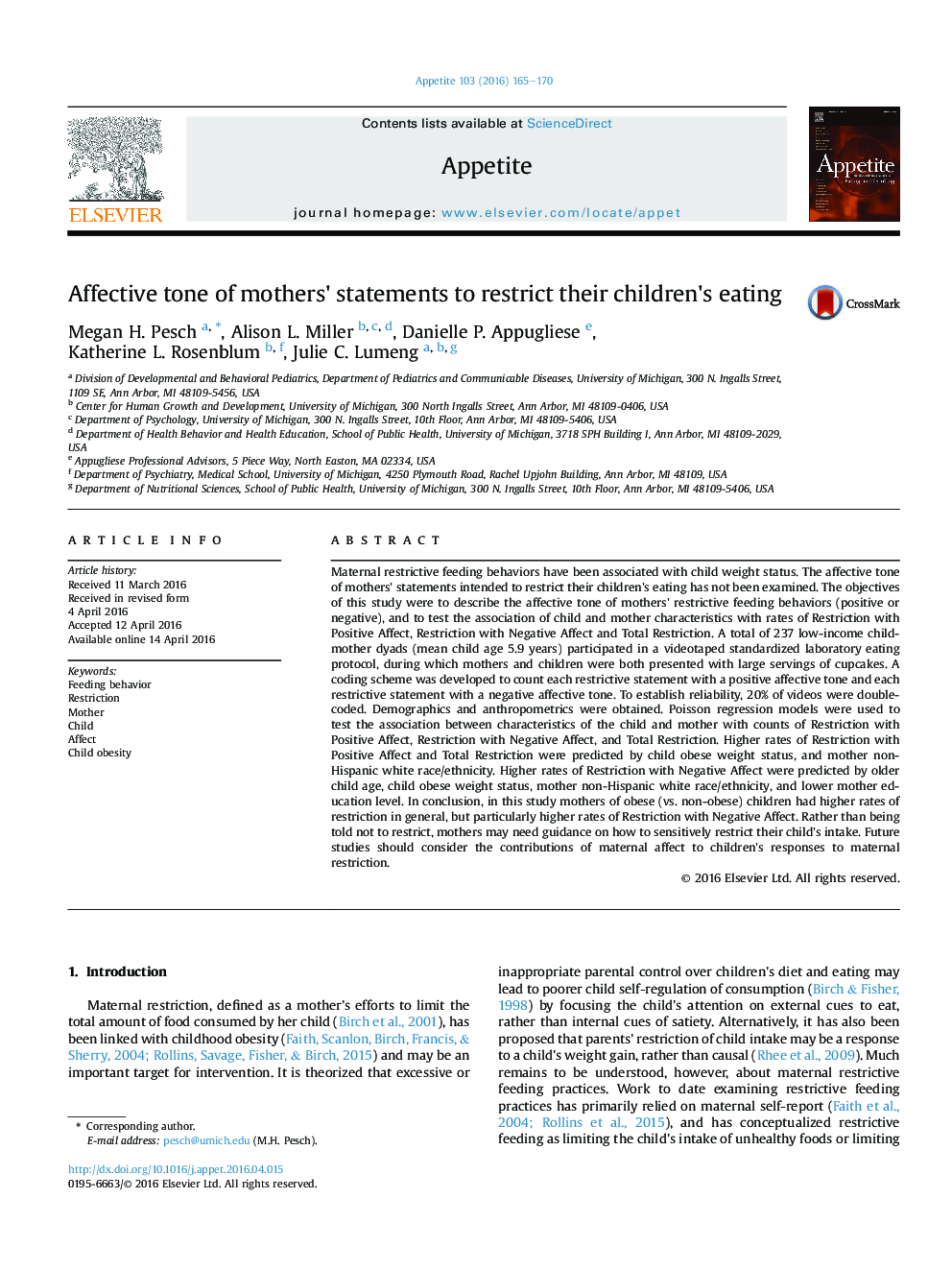| Article ID | Journal | Published Year | Pages | File Type |
|---|---|---|---|---|
| 7307302 | Appetite | 2016 | 6 Pages |
Abstract
Maternal restrictive feeding behaviors have been associated with child weight status. The affective tone of mothers' statements intended to restrict their children's eating has not been examined. The objectives of this study were to describe the affective tone of mothers' restrictive feeding behaviors (positive or negative), and to test the association of child and mother characteristics with rates of Restriction with Positive Affect, Restriction with Negative Affect and Total Restriction. A total of 237 low-income child-mother dyads (mean child age 5.9 years) participated in a videotaped standardized laboratory eating protocol, during which mothers and children were both presented with large servings of cupcakes. A coding scheme was developed to count each restrictive statement with a positive affective tone and each restrictive statement with a negative affective tone. To establish reliability, 20% of videos were double-coded. Demographics and anthropometrics were obtained. Poisson regression models were used to test the association between characteristics of the child and mother with counts of Restriction with Positive Affect, Restriction with Negative Affect, and Total Restriction. Higher rates of Restriction with Positive Affect and Total Restriction were predicted by child obese weight status, and mother non-Hispanic white race/ethnicity. Higher rates of Restriction with Negative Affect were predicted by older child age, child obese weight status, mother non-Hispanic white race/ethnicity, and lower mother education level. In conclusion, in this study mothers of obese (vs. non-obese) children had higher rates of restriction in general, but particularly higher rates of Restriction with Negative Affect. Rather than being told not to restrict, mothers may need guidance on how to sensitively restrict their child's intake. Future studies should consider the contributions of maternal affect to children's responses to maternal restriction.
Related Topics
Life Sciences
Agricultural and Biological Sciences
Food Science
Authors
Megan H. Pesch, Alison L. Miller, Danielle P. Appugliese, Katherine L. Rosenblum, Julie C. Lumeng,
